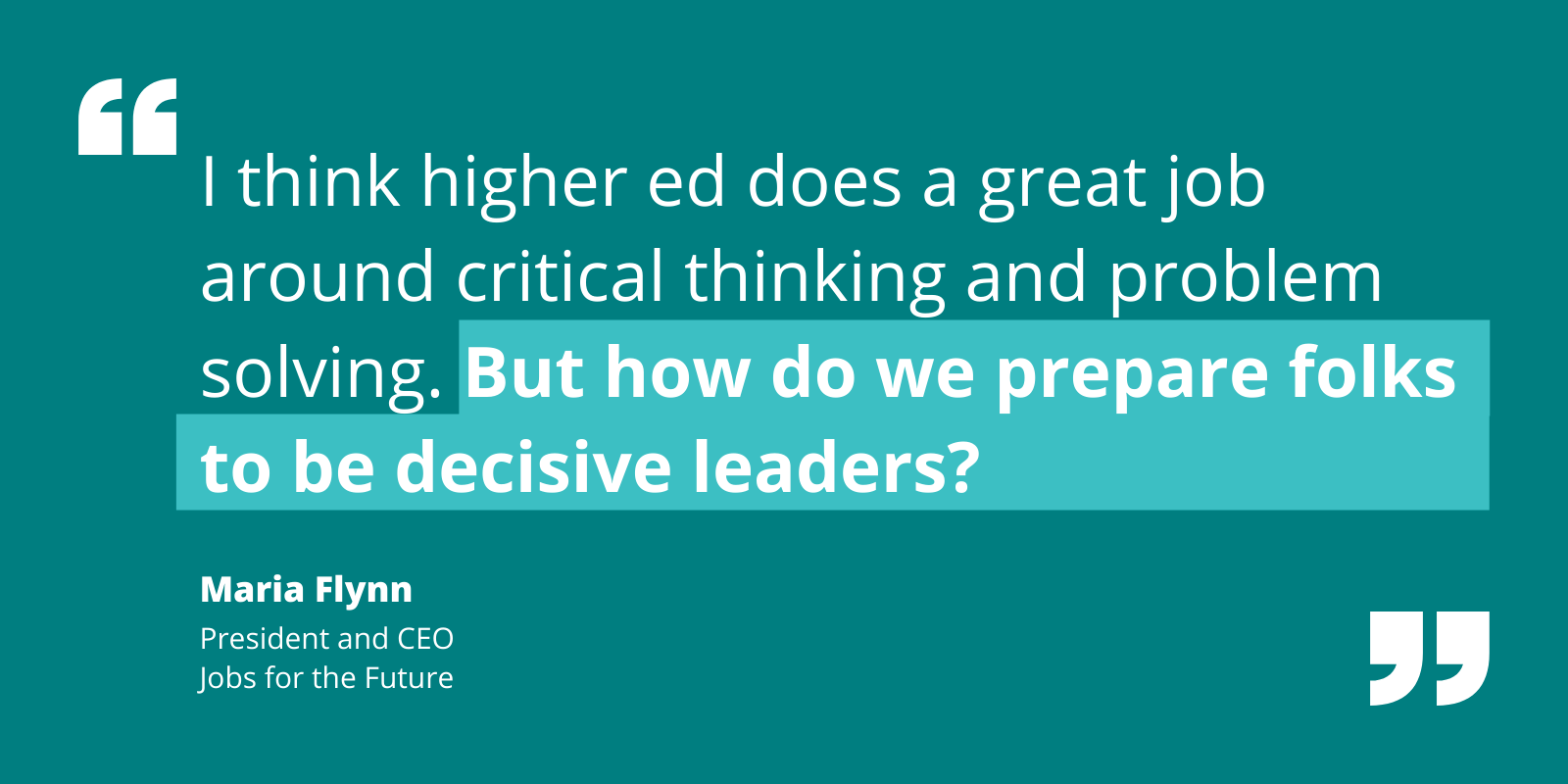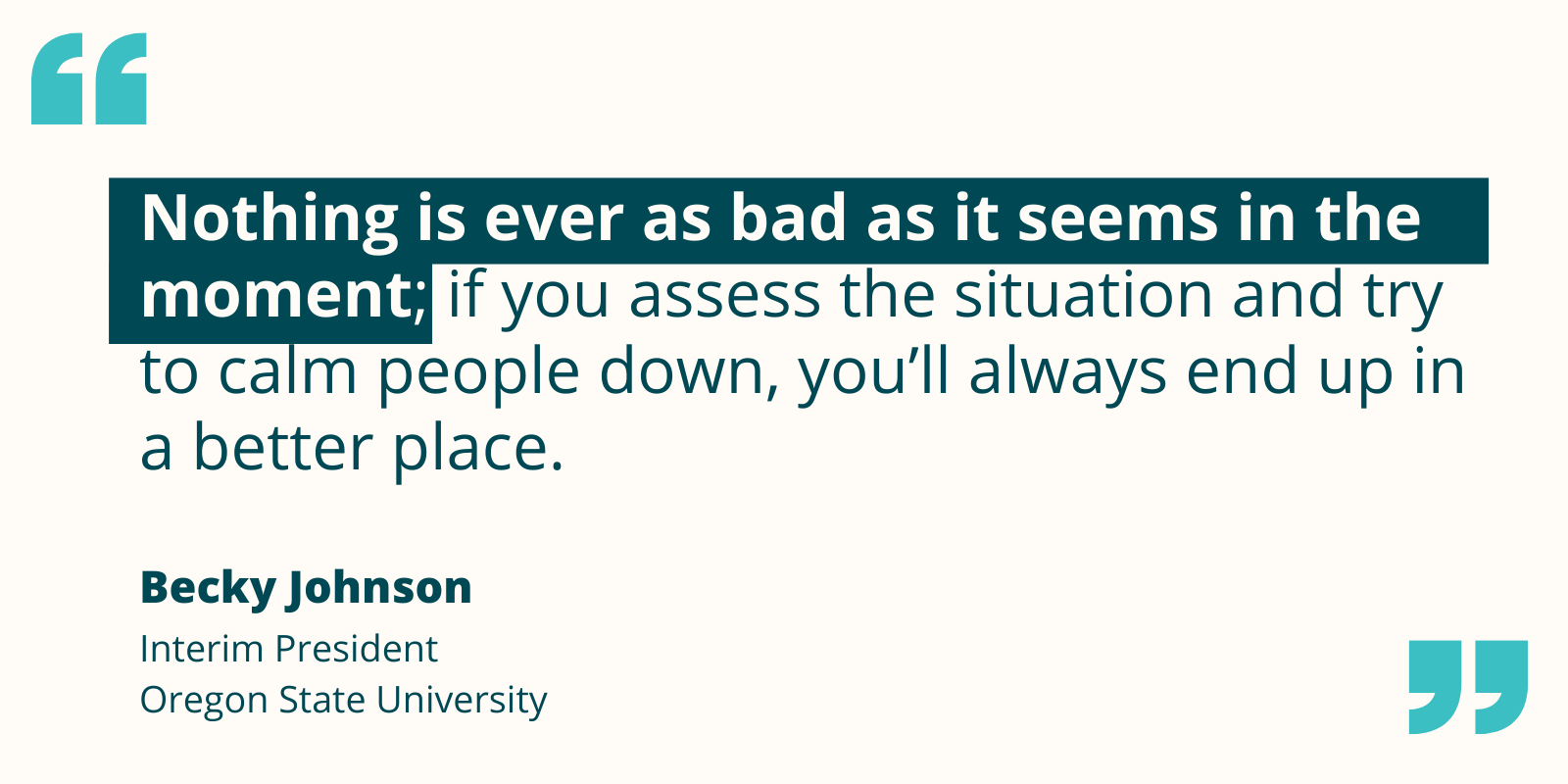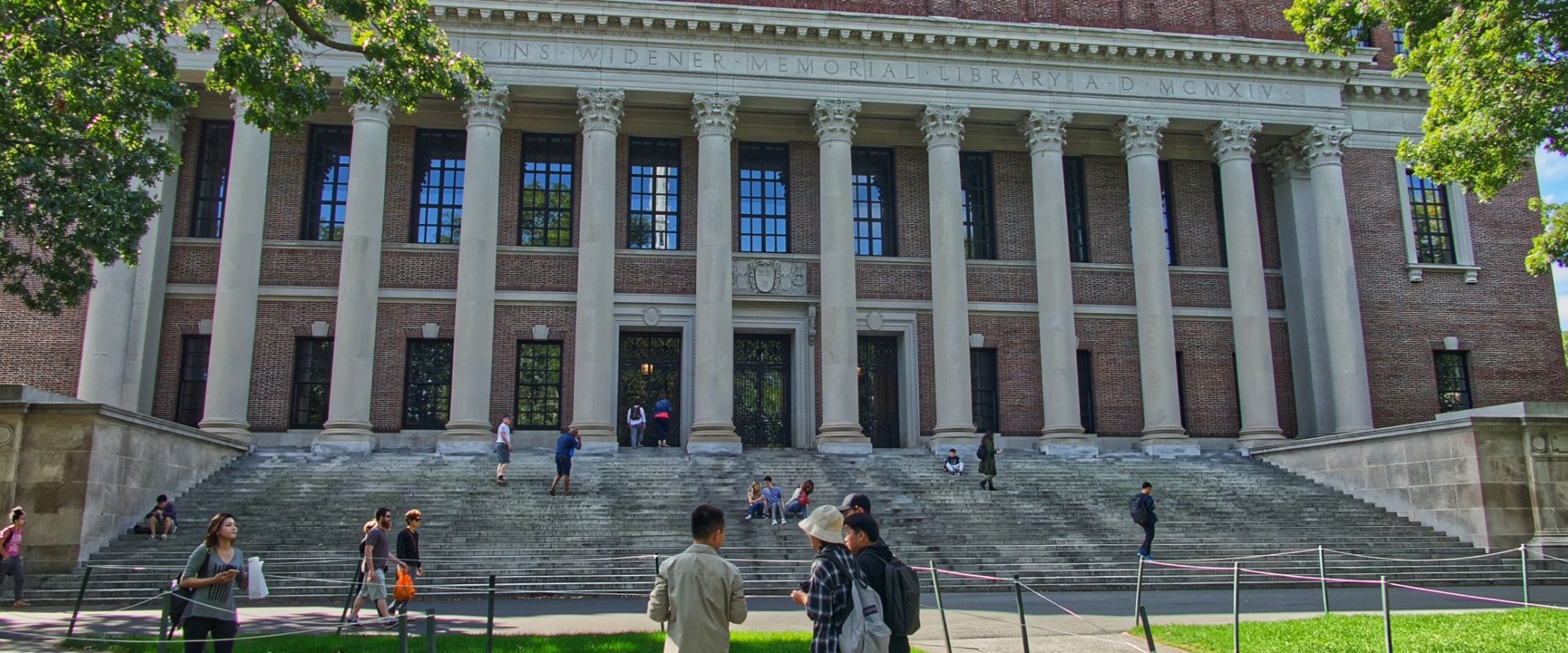For many of us in academic leadership, planning ahead is a constant feature of the job. On top of this, recent years of COVID and its variants, not to mention the political and cultural shifts through which we're living, have added layer upon layer of contingencies to the planning process. However, the essential qualities of a good leader remain unchanged regardless of the circumstances. As the University Innovation Alliance (UIA) helps you prepare for the oncoming academic year, we'd like to offer a bit of leadership wisdom from leaders whom we've had the honor of hosting on our podcast since the start of the pandemic.
The What and Why
Simple as this may sound, it's always good to keep in mind why your institution exists in the first place and why higher ed is so critical to our society.
- "What is the real purpose of public education? It's to lift the lives of others. It's really to help achieve the American Dream, to realize all the potential that you have." (Michael Rao, President, Virginia Commonwealth University)
- "What are we here for, in terms of teaching students, and doing our research, and doing our outreach? I’d like to make sure that we’re not taking our eye off of that." (Becky Johnson, Interim President, Oregon State University)
- "In an economic recession, by being that community partner responding to what needs to be done, we're helping to drive what needs to be done." (Marcia Ballinger, President, Lorain County Community College)
- "I’ve always said the measure of a great university is the quality of the faculty. So we’ll invest to hire the faculty, because they educate the next generation." (Kristina Johnson, President, The Ohio State University)
Room for Improvement
We've spoken with many education leaders over the years, and we've never met anyone with the desire to leave things exactly as they are. Even if something seems good enough, creative thinking and a committed team can always make it even better.
- "I think higher ed does a great job around critical thinking and problem solving. But how do we prepare folks to be decisive leaders?" (Maria Flynn, President and CEO, Jobs for the Future)
- "You’ve got to build a community that feels just inspired, and they feel like they can be entrepreneurial. And then don’t say no as a first answer. Try to say, 'This is how we get to yes.'" (M. Brian Blake, President, Georgia State University)
- "We all talk about how we want to be more inclusive, and yet we’re all part of a ranking system that gives you points simply for being selective. I think that this has created some real opportunities for change." (Ana Mari Cauce, President, University of Washington)
- "There are some things that can be learned from H.B.C.U.s. People are worried about the competition for students. There really should be a competition for faculty, staff, and administrators to say, 'We’re going to have an institution that looks like our student body.'" (Walter Kimbrough, President, Dillard University)
- "When we rely on others, we create this perpetual inequity. When you unpack faculty lives, you’re really surprised to see how much some of your colleagues are doing that you don’t know about: mentoring students, community service, or fixing the messes you’ve made. So let’s lean into that conversation." (Richard Reddick, Associate Dean, College of Education, The University of Texas at Austin)

Delivering on the Mission
Chances are that you'll always have a full plate of day-to-day concerns and tasks, yet keep in mind that institutions always look to their leaders for inspiration and wayfinding.
- "I think, as a leader, the beautiful thing is you're going to be invited into rooms to have conversations and share your vision and direction." (Frank Dooley, Chancellor, Purdue University Global)
- "Everyone is thirsty for real, intentional openness and integrity. I think leaders are often in those positions because they can demonstrate that. We just need to start for that place that allows us to proceed with that spirit." (Gaye Theresa Johnson, Associate Professor, University of California, LosAngeles)
- "If I get fired, I will get fired for standing up for something I think is right, or for trying to change something I think needs to be changed, and not because I didn’t do things, but because I did things that I think were for the good of the institution." (Samuel Stanley, President, Michigan State University)
- "We as universities have a crucial mission to be one of the biggest instruments of social mobility, to deliver on that promise of equal opportunity, inclusion, or a much more just world. We have a responsibility to be thinking about what we can and must do to deliver on that mission." (Ángel Cabrera, President, Georgia Institute of Technology)
The Longer View
Your institution was here before you assumed your current leadership position, and it will be here after you pass the torch to your successor. Always keep this continuity in mind, and let it serve as a well of calmness and certainty.
- "As we stay in the moment, focused on what we’re doing – hopefully prepared for what we’re doing – we can just take ourselves forward and things tend to work out." (Michael Drake, Former President, The Ohio State University)
- "Nothing is ever as bad as it seems in the moment, and if you just step back and assess the situation, look at the alternatives, and try to calm people down, you’ll always end up in a better place." (Becky Johnson, Interim President, Oregon State University)
- "Remember, we're an industry of the mind. We still have our minds, and we still have the opportunity to bring along students into this collection of scholars and learners. That's a pretty special thing. And if you stop and appreciate that, it's hard not to be inspired." (Kim Wilcox, Chancellor, University of California, Riverside)

Note: The interviews cited in this blog were drawn from the Weekly Wisdom and Scholarship to Practice Series originally aired between May 4, 2020 and May 2, 2022 as part of the University Innovation Alliance’s Innovating Together Podcast, created in partnership with Inside Higher Ed. We invite you to read More Leadership Advice for the New Academic Year, the second blog in this series.

